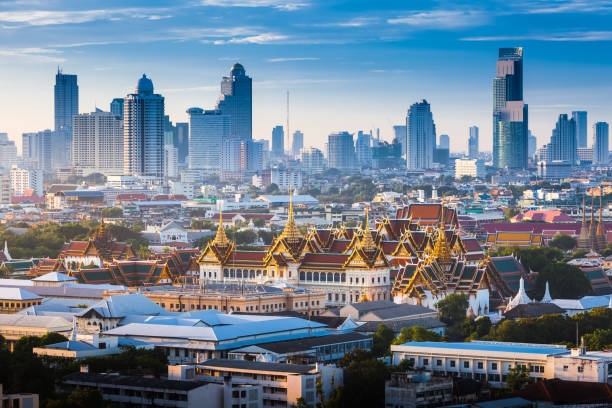Can I Buy Land in Thailand? Complete Legal Guide for Foreigners



Thailand is one of the most attractive destinations for foreigners seeking to invest, retire, or settle down. Its tropical climate, beautiful landscapes, and growing economy make property ownership an appealing option. However, many foreigners ask the same important question: Can I buy land in Thailand?
The answer is not straightforward, as Thai property law restricts direct land ownership by foreigners. Yet, there are several legal solutions that allow foreigners to enjoy property rights securely. At My Thailand Lawyer, a law service based in Bangkok, we guide clients through every legal option to protect their property interests while complying fully with Thai law.
This guide explains everything you need to know about buying or holding land in Thailand as a foreigner, the restrictions you must be aware of, and the alternatives available to you.
Can Foreigners Own Land in Thailand?
Under Thai law, foreign nationals are generally not allowed to own land outright. Land ownership is reserved for Thai citizens and certain legal entities. This restriction is part of the government’s efforts to protect national land resources.
That said, foreigners can legally own structures such as houses or buildings built on land. The challenge lies in how the land itself is held. Fortunately, Thai law provides several alternatives that allow foreigners to secure property rights without violating regulations.
Legal Alternatives for Foreigners to Buy or Control Land in Thailand
1. Leasehold Agreements
One of the most common methods for foreigners to gain control over land is through a lease agreement.
Leaseholds can be registered for up to 30 years.
Renewal clauses may allow extensions, though they depend on the landowner’s cooperation.
Foreigners can lease land for residential, commercial, or agricultural purposes.
This option provides legal security when properly registered at the Land Department.
2. Usufruct Rights
Another powerful legal tool available to foreigners is a usufruct lease agreement.
It grants the right to use and benefit from land for either a fixed term or the lifetime of the usufructuary.
Allows foreigners to live on the land, rent it out, or otherwise profit from it.
The ownership remains with the Thai landowner, but the usufructuary enjoys extensive rights during the term.
3. Superficies Rights
A right of superficies allows foreigners to own a building constructed on land owned by another person.
This right is registered at the Land Department.
It is commonly used when a foreigner builds a house on a Thai spouse’s land.
Provides long-term legal security for the structure.
4. Thai Limited Company Ownership
Foreigners may also purchase land in Thailand through a Thai majority-owned limited company.
The company must be majority-owned (at least 51%) by Thai shareholders.
Foreigners can legally control the company as directors and manage the property.
This method requires strict compliance with Thai corporate law to avoid being considered a nominee arrangement.
5. BOI Investment Privileges
Under certain conditions, foreign investors who receive approval from the Board of Investment (BOI) can own land for specific business or residential purposes.
Applies mainly to large-scale investors or companies with significant contributions to the Thai economy.
Rarely used for personal residential property.
6. Marriage to a Thai National
Foreigners married to Thai nationals cannot directly co-own land but can purchase property in the spouse’s name.
The foreign spouse must sign a declaration at the Land Office confirming that the funds used belong solely to the Thai spouse.
To secure rights, the foreign spouse often registers a usufruct or superficies on the property.
Buying Condominiums in Thailand – An Alternative to Land Ownership
While direct land ownership is restricted, foreigners are allowed to own condominiums in Thailand under certain conditions:
Up to 49% of the total units in a condominium project can be foreign-owned.
Ownership must be registered at the Land Department.
The funds used for purchase must come from abroad and be properly documented.
For many foreigners, condominiums provide the most straightforward form of freehold ownership in Thailand.
Steps to Secure Property Rights as a Foreigner in Thailand
When considering property investment, it is essential to follow legal procedures to avoid future disputes. At My Thailand Lawyer, we guide clients through each step:
Initial Legal Consultation
Understanding the client’s objectives (residential, investment, retirement).
Evaluating the most suitable ownership structure.
Due Diligence
Checking the title deed to confirm ownership and encumbrances.
Verifying land zoning, building regulations, and restrictions.
Drafting and Reviewing Contracts
Preparing lease agreements, usufruct contracts, or company structures.
Ensuring terms are legally enforceable and protect the client’s interests.
Registration at the Land Office
Completing official registration of rights such as lease, usufruct, or superficies.
Recording agreements on the title deed.
Ongoing Legal Support
Advising on renewals, transfers, and compliance with Thai law.
Important Legal Considerations
When exploring land ownership in Thailand, foreigners should keep the following in mind:
Inheritance: Leasehold rights may pass to heirs if registered accordingly. Usufruct rights, however, terminate upon death.
Nominee Arrangements: Using Thai nominees to hold land on behalf of foreigners is illegal and risky.
Due Diligence: Always verify the title deed and zoning restrictions before signing contracts.
Registration: Only registered agreements at the Land Department are legally enforceable.
Common Questions About Buying Land in Thailand
1. Can foreigners buy land directly?
No, foreigners cannot own land directly in their name under current Thai law.
2. What is the maximum lease period for land?
The maximum lease period is 30 years, with the possibility of renewal.
3. Can I build a house on land in Thailand?
Yes, foreigners can legally own a house built on land through a superficies agreement, even if the land is not owned directly.
4. Is a usufruct agreement better than a lease?
A usufruct provides more flexible and long-term rights, often lasting for the lifetime of the foreigner, while a lease is limited to 30 years.
5. Can foreigners own agricultural land?
Generally no, unless they are granted special approval through government investment programs.
Why Work with My Thailand Lawyer?
Navigating Thai property law requires professional expertise. At My Thailand Lawyer in Bangkok, we provide:
Comprehensive legal advice on property rights for foreigners.
Drafting and registration of usufructs, leases, and superficies agreements.
Company formation services for foreign investors seeking to hold land legally.
Guidance on condominium ownership and compliance with foreign ownership quotas.
Step-by-step support at the Land Office during registration.
With our in-depth knowledge of Thai property law, we ensure that our clients achieve secure and lawful solutions for living, investing, and doing business in Thailand.
So, can you buy land in Thailand as a foreigner? The answer is that while direct ownership is restricted, multiple legal pathways exist to secure property rights safely. Whether through a lease, usufruct, superficies, condominium ownership, or corporate structures, foreigners can enjoy the benefits of property in Thailand with the right legal guidance.
At My Thailand Lawyer, based in Bangkok, we specialize in helping foreigners navigate property ownership laws in Thailand. With our expertise, you can invest or settle in Thailand with confidence, knowing your property rights are fully protected.
